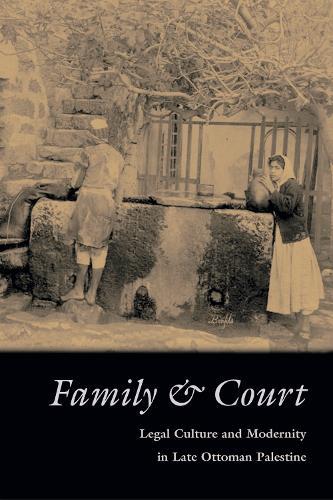Overview
This book challenges prevailing assumptions about family, courts of law, and the nature of modernity in Muslim societies against the backdrop of Haifa and Jaffa during """"the long nineteenth century"""". The popular image of the family and the court of law in Muslim societies is one of traditional, unchanging social frameworks. Iris Agmon suggests an entirely different view, grounded in a detailed study of nineteenth-century Ottoman court records from the flourishing Palestinian port cities of Haifa and Jaffa. She depicts the Sharia Muslim court of law as a dynamic institution, capable of adapting to rapid and profound social changes - indeed, of playing an active role in generating these changes. Court and family interact and transform themselves, each other, and the society of which they form part. Agmon's book is a significant contribution to scholarship on both family history and legal culture in the social history of the Middle East.
Full Product Details
Author: Iris Agmon
Publisher: Syracuse University Press
Imprint: Syracuse University Press
Dimensions:
Width: 15.20cm
, Height: 2.40cm
, Length: 22.90cm
Weight: 0.567kg
ISBN: 9780815630623
ISBN 10: 081563062
Pages: 288
Publication Date: 03 January 2006
Audience:
College/higher education
,
Professional and scholarly
,
Postgraduate, Research & Scholarly
,
Professional & Vocational
Format: Hardback
Publisher's Status: Active
Availability: In Print

This item will be ordered in for you from one of our suppliers. Upon receipt, we will promptly dispatch it out to you. For in store availability, please contact us.
Reviews
""[A] masterly use of Shari'a court records.... Agmon's work is among the best of the new trend in social science discourse that challenges and supplements these earlier studies. An outstanding example is her treatment of the orphan funds in Jaffa and Haifa at the turn of the nineteenth century, and [during] the years leading to WWI, which saw some of the most significant intrusions of the state and local government in managing social welfare.... [Her] work is at once lucid and free from obtrusive jargon, while raising significant methodological questions on the use of court records for socio-historical interpretation, class representation, and the protracted nature of modernity in urban Arab Society.""
[A] masterly use of Shari'a court records.... Agmon's work is among the best of the new trend in social science discourse that challenges and supplements these earlier studies. An outstanding example is her treatment of the orphan funds in Jaffa and Haifa at the turn of the nineteenth century, and [during] the years leading to WWI, which saw some of the most significant intrusions of the state and local government in managing social welfare.... [Her] work is at once lucid and free from obtrusive jargon, while raising significant methodological questions on the use of court records for socio-historical interpretation, class representation, and the protracted nature of modernity in urban Arab Society.
Author Information
Iris Agmon is a historian and lecturer in the Department of Middle East Studies at Ben-Gurion University, Israel. She is the author of many articles and a contributor to Women, the Family, and Divorce Laws in Islamic History, also published by Syracuse University Press.




